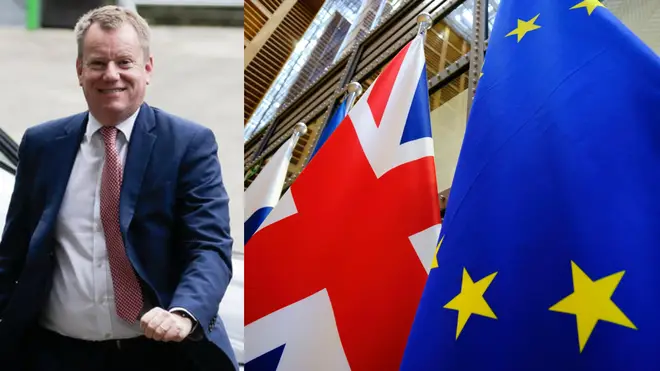
Nick Abbot 10pm - 1am
18 February 2020, 05:30

Boris Johnson's chief Brexit negotiator has insisted Britain will set its own laws and not accept demands from Brussels to create a "level playing field."
David Frost has set out the UK's stance ahead of post-Brexit trade negotiations, due to start next month.
He dismissed the idea an EU court would have a role in future trade disputes, saying: "We only want what other independent countries have."
Speaking in Brussels, David Frost said it was "central" to the PM's vision that the UK has the "ability to set laws that suit us."
The move comes after France warned the two sides would "rip each other apart" in trade talks ahead of the UK's scheduled exit from a Brexit transition period at the end of this year.
The European Union has said it wants Britain to sign up to its rules on fair and open competition - known as level-playing-field guarantees - meaning UK companies would be unable to undercut rivals if given tariff-free access to the EU market.
The EU has repeatedly warned that the UK cannot expect to enjoy continued "high-quality" market access if it insists on diverging from EU social and environmental standards.
It also wants the European Court of Justice to have a legal role in policing any free trade agreement reached.
Mr Frost also reiterated Prime Minister Boris Johnson's pledge not to extend the Brexit transition period.
The Brexit transition is a period agreed in the UK–EU Withdrawal Agreement in which the UK will no longer be a member of the EU but will continue to be subject to EU rules and remain a member of the single market and customs union.
This will allow the UK to continue its current relationship with the EU while the future trading relationship and security co-operation is negotiated.
Mr Frost said: "It is central to our vision that we must have the ability to set laws that suit us."
"To think that we might accept EU supervision on so-called level playing field issues simply fails to see the point of what we are doing.
"It isn’t a simple negotiating position which might move under pressure – it is the point of the whole project."
He said that is the reason there will be no extension to the transition period past the end of the year, because "at that point, we recover our political and economic independence in full - why would we want to postpone it?"
The speech follows comments by French foreign minister Jean-Yves le Drian, who predicted a bruising battle between the UK and EU on a post-Brexit deal.
Speaking at the weekend the French minister made it clear Brussels was willing to fight back in any trade negotiations.